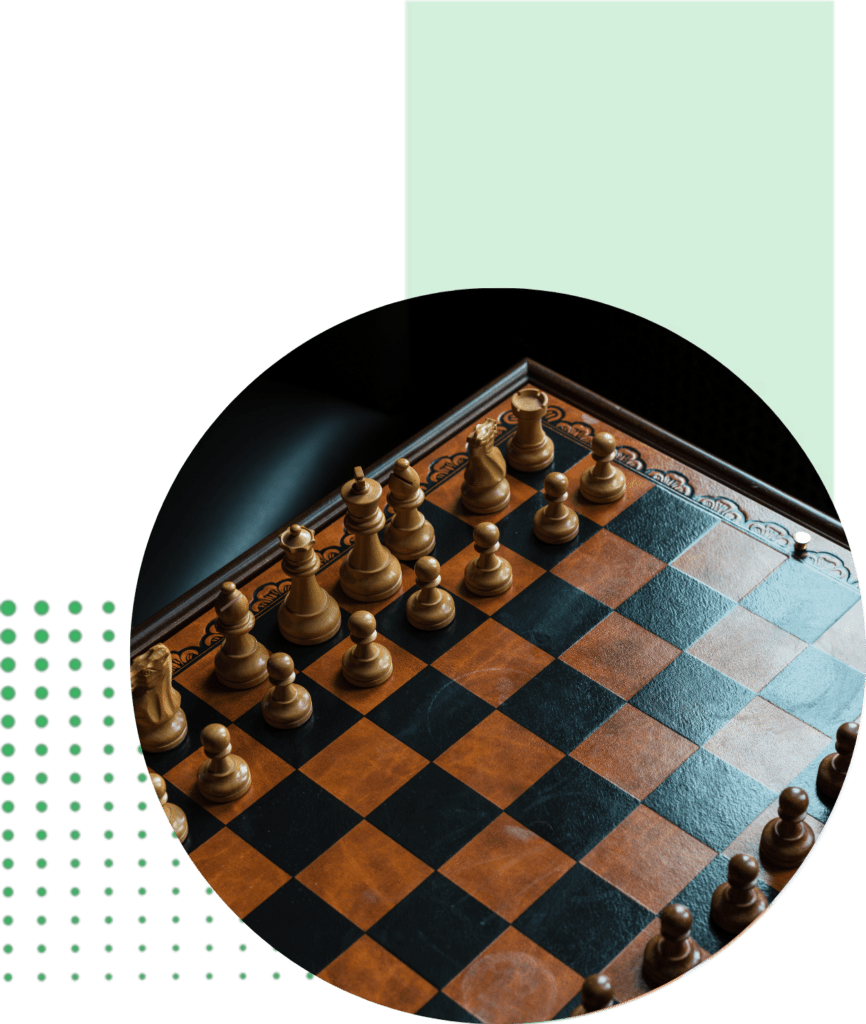Augmentez de 30% la performance de vos commerciaux grâce à l'IA générative
Formez vos équipes à l’ IA pour augmenter la qualité des rdvs et gagner du temps sur toutes les étapes de la vente
Présentiel ou distanciel – Taux de satisfaction de 4,9/5 – Plus de 500 clients accompagnés
Pourquoi cette formation ?
Vos commerciaux perdent trop de temps sur des tâches chronophages ?
Vous voulez qu’ils passent plus de temps en RDV client ?
Vous avez entendu parler de l’IA mais ne savez pas comment l’utiliser concrètement dans vos activités de vente ?
Contrairement aux formations généralistes sur l’IA, nous nous concentrons uniquement sur les actions concrètes que vos commerciaux peuvent mettre en œuvre dans leur quotidien.
La formation est préparée sur mesure, en fonction de vos outils (CRM, messagerie, etc.), de vos processus de vente, et des cas d’usages qui comptent vraiment pour vous.
Nous ne cherchons pas seulement à automatiser : nous “augmentons” les capacités de vos commerciaux. Grâce à l’IA, ils pourront réaliser des tâches qu’ils n’avaient pas toujours le temps ou la rigueur de faire : compte-rendus de qualité, suivi client, relances précises…
Et tout cela, en mode atelier concret, avec mise en pratique à chaque étape, accompagnés de nos agents IA exclusifs Kestio Lab : Bob le prospector, Charlie le découvreur, Alice la stratège commerciale.

Ce que vos équipes sauront faire après la formation
- ✅ Générer des mails de prospection personnalisés en 30 secondes
- ✅ Créer des scripts d'appels sur-mesure en fonction du persona ciblé
- ✅ Rédiger un compte rendu de rendez-vous clair et impactant avec l'IA
- ✅ Identifier les besoins du client plus vite grâce à l'analyse de conversation
- ✅ Automatiser les relances et messages de suivi
- ✅ Créer leur propre agent conversationnel IA personnalisé pour les aider dans leurs tâches commerciales
Échange rapide de 15min avec un expert
Nos formats d'accompagnement
4 niveaux d'implication
Pour qui ?
Format
Durée
CODIR, conventions, séminaire d’entreprise
🎤 Conférence Direction
1h à 1h30
Équipes commerciales & managers commerciaux
🛠 Atelier immersion IA
3h
Equipe dirigeante / Managers commerciaux
🎯 Formation individuelle*
12h
Équipes commerciales & managers commerciaux
👥 Formation en groupe*
20h
*Les formations individuelles et en groupe sont éligibles à une prise en charge via votre OPCO
CE QUE VOUS ALLEZ VIVRE
Exemple de programme de la formation (2 jours)
Comprendre ce qu’est l’IA générative et son fonctionnement
Découvrir les principaux outils (ChatGPT, Fireflies, etc.)
Apprendre à construire un bon prompt en fonction de ses objectifs commerciaux
Structurer son pitch et sa proposition de valeur
Cibler efficacement ses prospects à partir de données disponibles
Utiliser l’IA pour constituer ou enrichir ses fichiers de prospection
Générer des scripts d’appel personnalisés
Rédiger des messages efficaces pour LinkedIn et e-mail
Créer des séquences de suivi et des contenus d’approche
Construire des trames d’entretien de rendez-vous
Générer automatiquement des comptes rendus, résumés et plans d’action
Structurer une offre et un support de présentation assisté par IA
S’entraîner à la prospection téléphonique grâce à un agent IA
Simuler des RDV de découverte avec nos agents (Charlie, Alice, Bob)
Créer son propre assistant IA commercial pour se perfectionner au quotidien
A la fin de la journée, repartez avec :
Des prompts adaptés à votre secteur
Des templates de messages prêts à l’emploi
Des outils gratuits recommandés et testés par nos coachs
Votre agent IA personnel créé pendant la formation
Échange rapide de 15min avec un expert
Témoignages
Ils ont vécu la formation IA KESTIO


Webinar KESTIO
Les tendances commerciales BtoB en 2025
En compagnie de notre Directeur Général Dominique Seguin, nous décortiquons chaque étape de vente pour y agrémenter les nouveaux outils et techniques qu’offre 2025.
Ce que vous apprendrez :
✅ Comment synchroniser vos équipes marketing et commerciales pour ne plus perdre de prospects en route.
✅ L’IA appliquée aux ventes : Augmenter son taux de closing avec des cas d’usages concrets.




















